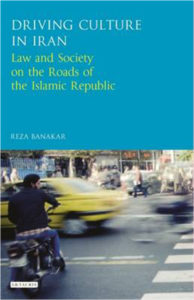
Driving Culture in Iran: Law and Society on the Roads of the Islamic Republic
Reza Banakar
I.B. Tauris (2015)
Rs 11,377
Iran has one of the highest rates of road traffic accidents worldwide and according to a recent UNICEF report, the current rate of road accidents in Iran is 20 times more than the world average. Using extensive interviews with a variety of Iranians from a range of backgrounds, this book explores their dangerous driving habits and the explanations for their disregard for traffic laws. It argues that Iranians' driving behaviour is an indicator of how they have historically related to each other and to their society at large, and how they have maintained a form of social order through law, culture and religion. By considering how ordinary Iranians experience the traffic problem in their cities and how they describe traffic rules, laws, authorities and the rights of other citizens, Driving Culture in Iran provides an original and valuable insight into Iranian legal, social and political culture.
Reza Banakar is professor and director of research in the Sociology of Law Department at Lund University. He has previously held the positions of Professor of Socio-Legal Studies at the Department of Advanced Legal Studies at the University of Westminster and Research Fellow at the Centre for Socio-Legal Studies at the University of Oxford. He is the author of Normativity in Legal Sociology (2015) and Law and Social Theory (2010, 2013).
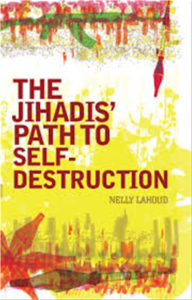
The Jihadis' Path to Self-Destruction
Nelly Lahoud
Columbia University Press (2010)
Rs 7,420
Are violent jihadis an enduring feature of modern international affairs, or do they hold in their own doctrines the seeds of self-destruction? Historical precedent suggests the latter. Jihadi ideologues have formulated an individualist-centered Islam to mobilise Muslims far and wide, youths above all, to join a global jihad. However, the duty and right to an individually initiated jihad constitutes just one side of this do-it-yourself Islam; the other is the duty to protect the purity of doctrinal beliefs against any perceived deviation by even their fellow jihadis. This book explores the religious philosophy underlying jihadism, as set against the background of the Kharijites, the first counter-establishment movement in Islam, whose idealistic and individualistic practice of Islam inevitably led them to deploy takfir against each other and thereby to self-destruct. By investigating the links between Kharijism and jihadism, Lahoud argues that the same doctrinal beliefs that appear to unite today's jihadis will also be the cause of their downfall.
Nelly Lahoud is associate professor with the Combating Terrorism Center in the department of Social Sciences, U.S. Military Academy, West Point. Her publications include Political Thought in Islam: A Study in Intellectual Boundaries.
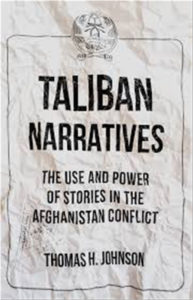
Taliban Narratives: The Use and Power of Stories in the Afghanistan Conflict
Thomas H. Johnson
Hurst (2017)
Rs 4,946
Why has the Taliban been so much more effective in presenting messages that resonate with the Afghan population than the United States, the Afghan Government and their allies? This book, based on years of field research and the assessment of hundreds of original source materials, examines the information operations and related narratives of Afghan insurgents, especially the Afghan Taliban, and investigates how the Taliban has won the information war. Taliban messaging, wrapped in the narrative of jihad, is both to the point and in tune with the target audiences it wishes to influence. On the other hand, the United States and its Kabul allies committed a basic messaging blunder, failing to present narratives that spoke to or, often, were even understood by their target audiences. Thomas Johnson systematically explains why the United States lost this "battle of the story" in Afghanistan, and argues that this defeat may have lost the U.S. the entire war, despite its conventional and technological superiority.
Thomas H. Johnson is a Research Professor of National Security Affairs at the Naval Postgraduate School (Monterey, California). He has conducted research and published widely on Afghanistan and South Asia for three decades. In 2009, he served as the Senior Political and Counterinsurgency Advisor to Gen Jonathan Vance, Commander of Canadian Forces in Afghanistan (Task Force Kandahar).
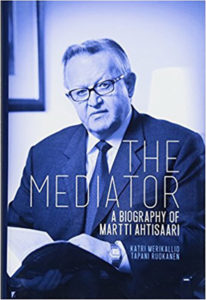
The Mediator: A Biography of Martti Ahtisaari
Katri Merikallio, Tapani Ruokanen
Oxford University Press (2015)
Rs 4,122
Martti Ahtisaari is the world's most renowned and successful mediator in international conflicts. In 2008 he was awarded the Nobel Peace Prize for his lead role in bringing independence to Namibia, Serbia's withdrawal from Kosovo, the decommissioning of weapons in Northern Ireland and autonomy for Aceh in Indonesia. Ahtisaari's range of international contacts and global experience are remarkable and his is the name which is still most often mentioned when the world looks for an individual to try to broker a peace deal.
Ahtisaari also served for six years as President of Finland, the first holder of that office to be directly elected. Upon leaving office, he founded Crisis Management Initiative, an international NGO specialising in conflict resolution and development issues. The Mediator is an authorised biography, based on extensive interviews with Ahtisaari himself as well as his family, friends and colleagues.
"Martti Ahtisaari's biography is an exciting account of an extraordinary life. It is a story of a person of modest background, a resolute visionary who by virtue of being born in a Nordic country was given an opportunity to make the most out of his skills. Martti Ahtisaari has become one of the leading peace mediators of our time, and an Ambassador of egalitarian thinking. He is a tireless advocate for giving everyone, girls and boys, an equal opportunity in life." - Gro Harlem Brundtland, first woman prime minister of Norway
Katri Merikallio and Tapani Ruokanen are senior editors of the leading Finnish periodical, Suomen Kuvalehti.
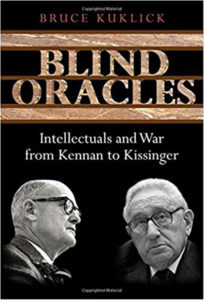
Blind Oracles: Intellectuals and War from Kennan to Kissinger
Bruce Kuklick
Princeton University Press (2013)
Rs 3,551
In this trenchant analysis, historian Bruce Kuklick examines the role of intellectuals in foreign policymaking. He recounts the history of the development of ideas about strategy and foreign policy during a critical period in American history: the era of the nuclear standoff between the United States and the Soviet Union.
The book looks at how the country's foremost thinkers advanced their ideas during this time of United States expansionism, a period that culminated in the Vietnam War and détente with the Soviets. Beginning with George Kennan after World War II, and concluding with Henry Kissinger and the Vietnam War, Kuklick examines the role of both institutional policymakers such as those at The Rand Corporation and Harvard's Kennedy School, and individual thinkers including Paul Nitze, McGeorge Bundy, and Walt Rostow.
Kuklick contends that the figures having the most influence on American strategy - Kissinger, for example - clearly understood the way politics and the exercise of power affects policymaking. Other brilliant thinkers, on the other hand, often played a minor role, providing, at best, a rationale for policies adopted for political reasons. At a time when the role of the neoconservatives' influence over American foreign policy is a subject of intense debate, this book offers important insight into the function of intellectuals in foreign policymaking.
Bruce Kuklick is the Nichols Professor of American History at the University of Pennsylvania. He has written several books in American intellectual history and in American intellectual, political, and diplomatic history.

